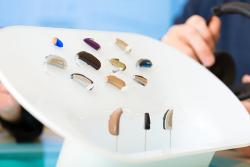History matters. I didn’t realize this as a kid, but I sure do now. I endured 2 years of U.S. history in high school, as New Jersey state law required. Can you say, soporific?
Only years later, as an adult, did I realize that history is a potent intoxicant that lured me into a deep addiction. Along with my Dad and brother, we sojourned many times across the country to many of our nation’s historical treasures. Most of these were civil war sites, which we properly regarded as hallowed ground.
History matters. I didn’t realize this as a kid, but I sure do now. I endured 2 years of U.S. history in high school, as New Jersey state law required. Can you say, soporific?
Only years later, as an adult, did I realize that history is a potent intoxicant that lured me into a deep addiction. Along with my Dad and brother, we sojourned many times across the country to many of our nation’s historical treasures. Most of these were civil war sites, which we properly regarded as hallowed ground.
Through happenstance nearly 2 decades ago, I learned of an aging physician in Saginaw, Michigan, Dr. Richard Mudd. I read that he had spent nearly his entire life trying to clear the name of his grandfather, Dr. Samuel Mudd, who was convicted as a participant in the conspiracy to assassinate Abraham Lincoln. My Dad and I drove up to Dr. Mudd’s home and listened to him tell his stories in in his parlor. The memory of this wonderful afternoon is vivid and indelible. This man, just 2 generations removed from the civil war, led me straight back to Lincoln.
As a physician, I also believe that history matters deeply, but it has been devalued. The medical history, the narrative that physicians elicit from our patient, remains the cornerstone of high quality medical care. Experienced physicians know, even if we often deviate from this practice, that a thorough medical history is the most significant and relevant data that will be available to us. Too often, short circuiting occurs, such as the hypotheticals listed below.
- A patient with chest pain is summarily referred for a cardiac stress test
- A patient with abdominal pain is whisked off for an ultrasound of the gallbladder (GB)
- A patient with a headache is sent for an MRI of the head
I’m not suggesting that these diagnostic tests may not be the proper responses to the listed patient complaints. But, they may be premature or unnecessary. Medical tests are often ordered mechanically in a reflexive mode rather than after reflective moments. Medical tests are not tools for obtaining a medical history. In contrast, it’s the history that determines which test, if any, is necessary to narrow the diagnostic possibilities. Patients have a hard time grasping this concept and have come to believe that lots of medical tests, particularly imaging studies, define high quality care. This is not their fault. Who taught them these lessons?
Using chest pain as an example, in many cases, a thorough history can lead to the diagnosis. While many diseases can be sly and masquerade as other conditions, experienced physicians can usually obtain solid evidence that chest pain is cardiac, pulmonary, gastrointestinal or muscular simply by listening to the patient’s story. A medical test should be ordered to answer a specific and significant question that remains after the medical history and a physical examination. (While the physical examination has real value, in general, it does not approach the worth of the medical history.) For example, we do not order an ultrasound of the gallbladder because a patient has a stomach ache. We do so because the history is suggestive of gallbladder pain, and the ultrasound will confirm the specific diagnosis under consideration. Here’s why this is so important. If an ultrasound of the GB is ordered casually on a patient with stomach pain, and gallstones are discovered, then it may be falsely assumed that an explanation for the pain has been found. This patient may be referred to a surgeon for a ‘curative’ cholecystectomy, or removal of the gall bladder. What should have happened at the initial visit was a careful medical history, which may have excluded the gallbladder as the culprit. Most gallstones found these days are innocent bystanders, and not a cause of symptoms.
Israeli researchers showed how powerful physicians’ basic clinical skills and acumen were in making a correct diagnosis, without scans and other imaging studies. It’s nice when a study confirms our gut instincts.
If a medical test is ordered, ask what specific question it is designed to answer. Is it a fishing expedition? Will it decide between 3 competing diagnoses? How will the test result change the care? If the results won’t change anything, then should the test be done?
Medical history counts in a big way, even if the pay-for-performance schemes can’t measure it. Will physicians still be taking old fashioned medical histories four score and seven years from now?







